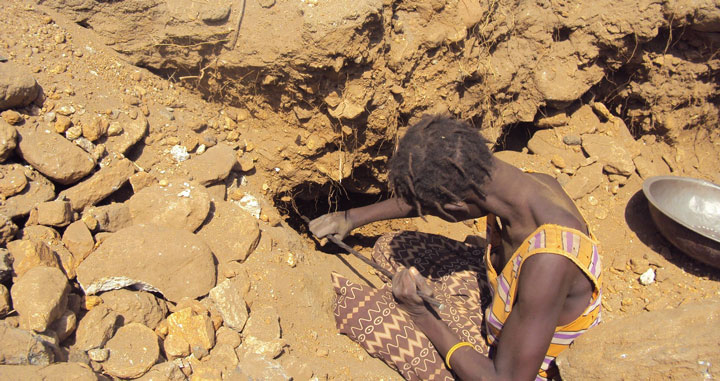Who We Are

VISION
A society that conserves, controls, benefits and enjoys equitable access to natural resources

MISSION
To consolidate and coordinate community efforts in advocating for policies and legislation that promotes equitable access, control and sustainable use of Natural Resources
Our Values
- Economic and social justice
- Respect for human rights
- Gender equality
- Peace and non-violence
- Sustainable use of natural resources
- Inclusivity in decision-making
- Respect for cultural diversity
- Development with Equity
- Solidarity and transparency
About Us

KENRA is a coalition of Kenyan and regional civil society organizations and community-based organisations whose focus is principally on natural resource management issues. KENRA works jointly with like-minded partners across Africa and across the globe to ensure sustainability, government and corporate accountability, and community involvement in natural resource exploitation.
KeNRA was formed in 2012 as a national grouping of the International Alliance of Natural Resources in Africa (IANRA). It has since grown to attract over 20 members from different regions and joined other partnerships and alliances globally. The alliance consolidates collective efforts – especially those of communities – in advocating for policy implementation in promoting equitable access, control, and sustainable use of Natural Resources.
Our Objectives
- To foster a spirit of partnership and cooperation through information sharing, networking, and collaboration between members, as well as with other civil society organisations involved in natural resource issues in Kenya and the region;
- To influence policy processes that guide natural resource management;
- To promote public awareness amongst communities on sustainable management of natural resources;
- To support applied research and monitoring of the exploitation of natural resources and its impact on community welfare and the integrity of the environment.
Our Approaches
Strategic Alliances
KENRA’s membership across the region has been very powerful and it consists of powerful grassroots organisations and entities that have affected conservation efforts. We will build strong partnerships with diverse stakeholders present and future.
Amplifying the voice of
grassroots movements
Building the agency of community members so they can understand their role in protecting and nurturing supporting communities in the region to adapt to the unavoidable impacts of the declining environmental conditions
Thematic Areas
Forestry
At KeNRA, we recognise the role played by forests in maintaining communities, the environment and the overall development of the country. We thus work with members, join stakeholder efforts, develop campaigns and programs in among other issues;
- Strengthening forest governance including ensuring that forest laws and policies are in place and enforced and that there is effective participation and engagement of all stakeholders including local communities and indigenous peoples.
- Promoting sustainable forest management practices such as selective logging, reforestation, and agroforestry to reduce deforestation and forest degradation while ensuring the needs of local communities and the economy are met.
- Education and awareness creation through campaigns to promote the value of forests and the importance of their conservation by reaching out to schoolchildren, farmers, and other stakeholders to encourage responsible forest use and management.
- Encouraging alternative livelihoods such as sustainable agriculture, eco-tourism and non-timber products to communities that depend on forest resources for their survival, to as a result, reduce pressure on forests.
- Supporting and strengthening law enforcement against illegal forest activities such as poaching, logging, and land encroachment, which contribute to forest degradation and deforestation.
- Promoting partnerships and collaboration between the government, other civil society organisations, local communities, and the private sector to promote sustainable forest management. This includes developing partnerships to support community forest management and promoting sustainable forestry practices in the private sector.
Wildlife
The wildlife sector in the region is a vibrant and significant component of the region’s natural heritage. The region boasts a diverse array of iconic wildlife species and breathtaking landscapes. The countries in this Eastern Africa region have recognized the immense ecological, economic, and cultural value of their wildlife and have made concerted efforts to protect and conserve their natural treasures.
Designated areas such as parks, reserves and conservancies are home to an impressive variety of animals, including elephants, lions, rhinos, giraffes, zebras, and numerous bird species. They attract millions of tourists each year, contributing significantly to the region’s economy through wildlife-based tourism. Governments and conservation organizations in the region have implemented conservation strategies to safeguard these ecosystems, combat poaching, and promote sustainable tourism practices. Efforts are also underway to address human-wildlife conflict, enhance community involvement, and promote local livelihoods that are linked to wildlife conservation. The sector faces challenges such as habitat loss, illegal wildlife trade, and climate change, which require continued collaborative efforts and innovative solution to solve.
KENRA recognises that the sector plays a pivotal role in generating revenue, creating employment opportunities, and promoting environmental education and awareness. KENRA coordinates activities that promote wildlife as a source of pride and cultural identity for local communities, and involves them in community-based conservation initiatives.
Water
Water, an indispensable element for supporting life on Earth, is facing immense challenges. Its availability is crucial for the survival of human beings and ecosystems, and it serves as a foundation for various economic activities while contributing to the majority of Sustainable Development Goals. However, the demand for freshwater is rapidly increasing, and it has become an inseparable component of national economies, being used for drinking, irrigation, hydropower, feedstock production, consumer goods, mining operations, and energy production. The existing pressures on water resources are further intensified by the impact of climate change, population growth, urbanization, and rising food demand.
As a result, the scarcity and stress of freshwater are growing in most regions, and water security is under a significant threat. These issues disproportionately affect the poor, especially women who are primarily responsible for the health and welfare of children and the elderly. Additionally, water scarcity events like droughts and floods, when combined with weak governance and other factors, can become risk multipliers, leading to destabilization, violence, and migration.
The water crisis is also accelerating due to pollution, which further reduces the amount of water available for human use. Pollution sources such as fertilizer application, animal farming, high sediment loads, and organic pollutants contribute significantly to pollution, diminishing the quality of water in rivers, lakes, and oceans.
To mitigate these challenges, KeNRA aims to establish a common understanding of competing water needs by supporting the sustainable, integrated management of water resources and promoting sector reforms in the region. Through coordinated and cooperative action, we can enhance our capacity to address mounting water needs and pressures while avoiding or resolving conflicts.
Extractives
The extractives sector in the region and the continent presents both opportunities and challenges. On one hand, it offers the potential for job creation, foreign direct investment, and revenue generation through exports. These resources can contribute to infrastructure development, poverty alleviation, and economic diversification. However, the sector also raises concerns regarding environmental impact, social displacement, and economic inequality. Ensuring sustainable practices, responsible resource management, and equitable distribution of benefits are crucial factors that governments and stakeholders must consider. Transparency, good governance, and effective regulatory frameworks are necessary to mitigate the risks associated with the extractives sector and maximize its positive impacts.
KENRA’s work in the sector aims to help governments and communities strike a balance between harnessing the economic benefits and addressing environmental and social concerns. By adopting sustainable practices and engaging in inclusive decision-making processes, stakeholders can promote responsible extraction, minimize negative impacts, and ensure that the extractives sector contributes to long-term development and the well-being of the people of the region.
Join Our Mailing List

Follow Us:
Quick Links:
Contact Us
330 Diani Road,
Off Ole Dume Road,
P.O.Box 83762-80100, Nairobi
Tel: +254719194239
Email: info@kenra.or.ke
SDGs

